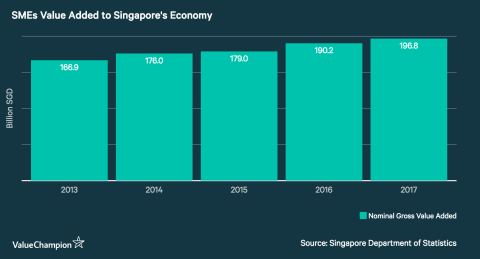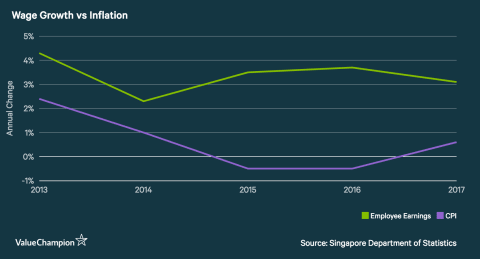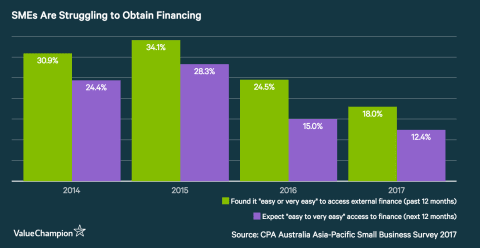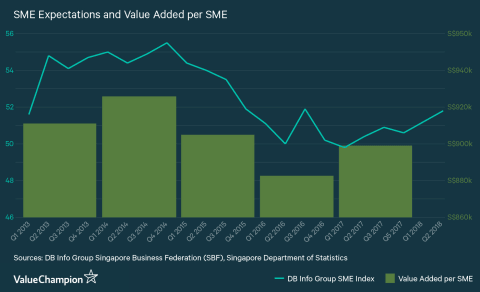Are Singapore's SMEs Really Prospering?

With an unemployment rate of 2.1% and per capita GDP of nearly $53,000, Singapore's economy is one of the world's strongest. This economy is powered by small and medium sized enterprises (SMEs), which make up 99% of all enterprises and employ 65% of all workers. Here, we analyse and review a number of statistics to assess the health of these businesses.
Profile of Singapore's SMEs
Small-Medium Enterprises (SMEs) are a crucial segment of the Singaporean economy. Approximately 219,000 SMEs contribute S$196.8 billion in gross value added to the economy. Additionally, SMEs have generated half of the nation's growth in gross value added in the past five years. On average, each Singaporean SME employs 10 workers and contributes S$900,000 in gross value added to the economy.

Challenges Facing SMEs
Even as major players in Singapore's economy, SMEs have faced difficulties in recent years. For example, the average value added per SME has decreased 1% since 2013 and the average size of SMEs has decreased by 12%. These figures indicate that SMEs may be struggling in recent years.
Power of Large Corporations
Large businesses also play a significant role in Singapore's economy. These companies, which make up just 1% of all enterprises in Singapore, employ 35% of workers and contribute about half of the economy's gross value added. These large, powerful corporations seem to be making it it difficult for smaller businesses to survive. While SMEs have been growing at a slower rate and contributing less to the economy, large corporations have been growing. Non-SMEs' value added per company has grown by 8 percent since 2013.
Rising Costs
Business owners everywhere grumble anecdotally about rising costs. In 2017, 42% of Singapore's SMEs reported that increasing costs had significantly harmed on their business. One example of rising business costs is the increase in the cost of labor. Businesses have faced higher costs as wages have continually grown faster than inflation.This has squeezed their margins, while the average value added per firm has decreased, making it more difficult to operate a profitable enterprise.

Limited Access to Finance
A recent study concluded that about 4 of 5 Singaporean SMEs do not qualify for business financing. Over the past four years, Singapore's SMEs have had more difficulty obtaining financing. In 2017, 18% of SMEs reported finding it "easy" to obtain financing (down from 30.9% in 2014), and 12.4% of SMEs expected "easy" access to financing in 2018 (down from 24.4% in 2014). A lack in financing can hinder, or even prohibit, a business's growth. This makes these trends worrisome for SMEs.

However, there have been improvements in the accessibility of financing due to the emergence of crowdfunding in Singapore. Crowdfunding platforms allow businesses to raise funds from large groups of individual investors.
What Does the Future Hold for SMEs?
Despite facing real challenges, SMEs in Singapore have a relatively positive outlook. The DB Info Group and Singapore Business Federation (SBF) SME Index, which tracks the expectations of small businesses, reached a two year high for the second quarter of 2018 (51.8). However, this index appears to occasionally lag behind SMEs' performance. For instance, the index peaked in the fourth quarter of 2014, before two consecutive years of economic contraction for SMEs. This lag is intuitive, as businesses may expect current trends to continue.
While the SME Index may not always predict business performance, SMEs have reason to be confident. The recent 2018 Budget increases support for small businesses through an extension of the Wage Credit Scheme (WCS) and the corporate tax rebate, as well as other deductions and grants.

